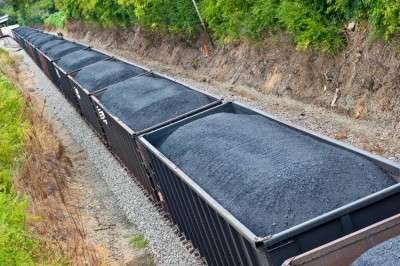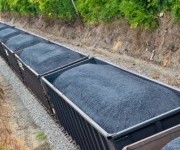 Yesterday, Jess noted a new paper in the American Economic Review: “Environmental Accounting for Pollution in the United States Economy.” Brad Johnson has a longer summary here. I want to emphasize the paper’s conclusions and make a few related points. But mostly I want to beg everyone: spread this around. Coal’s net economic effects on the U.S. are poorly understood, to say the least, and this paper’s findings are stunning.
Yesterday, Jess noted a new paper in the American Economic Review: “Environmental Accounting for Pollution in the United States Economy.” Brad Johnson has a longer summary here. I want to emphasize the paper’s conclusions and make a few related points. But mostly I want to beg everyone: spread this around. Coal’s net economic effects on the U.S. are poorly understood, to say the least, and this paper’s findings are stunning.
Once you strip away the econ jargon, the paper finds that, on the margin, electricity from coal imposes more damages on the U.S. economy than the electricity is worth. That’s right: The next coal-fired power plant is a net value-subtraction. A parasite, you might say, that will enrich a few executives and shareholders at the public’s expense.
If you’re of a wonky bent, it’s worth digging in. The authors try to establish a framework for integrating air-pollution costs into national accounts — that is, a systematic way of accounting for those “externalities” you’re always hearing about — and come up with something called gross external damages (GED). They calculate GED for several common industries and find that not only coal power, but “solid waste combustion, sewage treatment, stone quarrying, [and] marinas” have air-pollution externalities that exceed their total value added.
But coal power is a parasite in a class by itself, with a GED equal to the combined totals of its three closest competitors. In fact, coal plants “are responsible for more than one-fourth of GED from the entire U.S. economy” — roughly $53 billion in damages a year.
A couple of notes on this:
First, as Dan Farber says, this is not a fringe journal and these are not fringe economists:
The American Economic Review is probably the most prestigious academic journal in economics. … In the area of climate economics, [Robert] Mendelsohn and [William] Nordhaus are considered to be centrist if not a bit conservative; they aren’t beloved of environmentalists.
Second, the conclusions are almost certainly conservative. Damages from air pollution are included, “but other external effects such as those that take place through water, soils, noise, and other media are not.” More importantly, the extraordinary damages mentioned above do not include CO2 and its effect on climate change. Here’s Brad:
When the authors add in highly conservative estimates of the cost of carbon dioxide pollution, they find that “the damages caused by oil- and coal-fired power plants are between 30 and 40 percent higher.” With an estimated social cost of carbon — a damage estimate of global warming pollution — of $65 (far less than other estimates), the GED for coal-fired generators is 4.7 cents/kWh.
It’s remarkable, really, that we don’t have any established way of calculating these damages built into the accounting systems of OMB, CBO, and other agencies. The public just absorbs these costs, in health-care spending, missed work days, lower productivity, and simple suffering (the ill effects of which are not spread evenly among classes, races, or regions), yet we pretend like these costs just happen, like they have no origin or responsible parties.
And finally, I appreciate economic models, but we should also heed common sense. An activity that kills tens of thousands of people a year, poisons fetuses in mother’s wombs, gives poor kids asthma, pollutes groundwater, toxifies soil, destroys mountains, and threatens to render the planet uninhabitable is not, by definition, cheap. If the the way you do your accounts makes it look cheap, then something is wrong with the way you do your accounts. If your politics gives it a place of privilege, something is wrong with your politics.
The costs of coal, so long unheeded and undercounted, are extraordinarily high. And they are only rising. Meanwhile, the costs of alternatives to coal are falling. A wise culture would, as hockey star Wayne Gretsky used to say, skate to where the puck is going.




